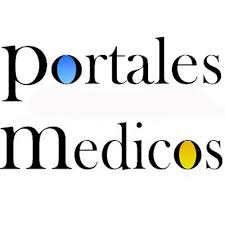Papel de la microbiota intestinal en la enfermedad de alzheimer y esclerosis múltiple
Role of the intestinal microbiota in alzheimer's disease and multiple sclerosis
Resumen
RESUMEN
La microbiota intestinal ha emergido como un modulador esencial del eje intestino–cerebro, influyendo en procesos inmunológicos, endocrinos y neurológicos. Su desregulación, o disbiosis, se ha vinculado con la progresión de enfermedades neurodegenerativas y autoinmunes como la enfermedad de Alzheimer (EA) y la esclerosis múltiple (EM). El objetivo del estudio fue revisar en la literatura la información más actualizada y describir la relación entre la microbiota intestinal, la EA y EM. Se realizó una búsqueda bibliográfica en PubMed, Scopus y Biblioteca Virtual de la Salud, de acuerdo con los resultados obtenidos, en la EA, existe una reducción de bacterias productoras de ácidos grasos de cadena corta (AGCC), acompañada de un aumento de especies proinflamatorias, asociadas con acumulación de péptido beta-amiloide, proteína tau hiperfosforilada y deterioro cognitivo progresivo. En la EM, se confirmó una disbiosis caracterizada por la pérdida del eje Bacteroides–Prevotella y una mayor abundancia de géneros como Akkermansia, Methanobrevibacter y Bilophila, vinculados a un entorno inmunológico proinflamatorio y procesos de desmielinización. La disbiosis intestinal no solo acompaña, sino que contribuye activamente a la progresión de la EA y la EM. El desequilibrio entre bacterias con funciones inmunomoduladoras y proinflamatorias destaca el valor de la microbiota intestinal como biomarcador diagnóstico y pronóstico, así como diana terapéutica emergente.
ABSTRACT
The gut microbiota has emerged as an essential modulator of the gut-brain axis, influencing immunological, endocrine, and neurological processes. Its dysregulation, or dysbiosis, has been linked to the progression of neurodegenerative and autoimmune diseases such as Alzheimer's disease (AD) and multiple sclerosis (MS). The objective of this study was to review the most up-to-date literature and describe the relationship between the gut microbiota, AD, and MS. A literature search was conducted in PubMed, Scopus, and the Virtual Health Library. According to the results obtained, in AD, there is a reduction in short-chain fatty acid (SCFA)-producing bacteria, accompanied by an increase in proinflammatory species, associated with the accumulation of beta-amyloid peptide, hyperphosphorylated tau protein, and progressive cognitive decline. In MS, dysbiosis characterized by the loss of the Bacteroides-Prevotella axis and an increased abundance of genera such as Akkermansia, Methanobrevibacter, and Bilophila, linked to a proinflammatory immune environment and demyelination processes, has been confirmed. Gut dysbiosis not only accompanies but actively contributes to the progression of AD and MS. The imbalance between bacteria with immunomodulatory and proinflammatory functions highlights the value of the gut microbiota as a diagnostic and prognostic biomarker, as well as an emerging therapeutic target.
Recibido: 01-09-2025
Aceptado: 01-10-2025
Publicado: 17-11-2025
Palabras clave
Texto completo:
PDFReferencias
Barone, M., Mendozzi, L., D’amico, F., Saresella, M., Rampelli, S., Piancone, F., La Rosa, F., Marventano, I., Clerici, M., D’arma, A., Pugnetti, L., Rossi, V., Candela, M., Brigidi, P., & Turroni, S. (2021). Influence of a high impact multidimensional rehabilitation program on the gut microbiota of patients with multiple sclerosis. International Journal of Molecular Sciences, 22(13). https://doi.org/10.3390/ijms22137173
Castillo-Álvarez, F., & Marzo-Sola, M. E. (2022). Role of the gut microbiota in the development of various neurological diseases. Neurologia, 37(6), 492–498. https://doi.org/10.1016/j.nrl.2019.03.017
Castillo-Álvarez, F., Pérez-Matute, P., Oteo, J. A., & Marzo-Sola, M. E. (2021). The influence of interferon β–1b on gut microbiota composition in patients with multiple sclerosis. Neurologia, 36(7), 495–503. https://doi.org/10.1016/j.nrl.2018.04.006
Chen, T., Noto, D., Hoshino, Y., Mizuno, M., & Miyake, S. (2019). Butyrate suppresses demyelination and enhances remyelination. Journal of Neuroinflammation, 16(1), 1–13. https://doi.org/10.1186/s12974-019-1552-y
Dunalska, A., Saramak, K., & Szejko, N. (2023). The Role of Gut Microbiome in the Pathogenesis of Multiple Sclerosis and Related Disorders. Cells, 12(13), 1–13. https://doi.org/10.3390/cells12131760
Faulin, T. D. E. S., & Estadella, D. (2023). Alzheimer’s disease and its relationship with the microbiota-gut-brain axis. Arquivos de Gastroenterologia, 60(1), 144–154. https://doi.org/10.1590/S0004-2803.202301000-17
Hasic Telalovic, J., & Music, A. (2020). Using data science for medical decision making case: Role of gut microbiome in multiple sclerosis. BMC Medical Informatics and Decision Making, 20(1), 1–11. https://doi.org/10.1186/s12911-020-01263-2
Hou, K., Wu, Z. X., Chen, X. Y., Wang, J. Q., Zhang, D., Xiao, C., Zhu, D., Koya, J. B., Wei, L., Li, J., & Chen, Z. S. (2022). Microbiota in health and diseases. Signal Transduction and Targeted Therapy, 7(1). https://doi.org/10.1038/s41392-022-00974-4
Lin, Q., Dorsett, Y., Mirza, A., Tremlett, H., Piccio, L., Longbrake, E. E., Choileain, S. N., Hafler, D. A., Cox, L. M., Weiner, H. L., Yamamura, T., Chen, K., Wu, Y., & Zhou, Y. (2024). Meta-analysis identifies common gut microbiota associated with multiple sclerosis. Genome Medicine, 16(1),94 https://doi.org/10.1186/s13073-024-01364-x
Loh, J. S., Mak, W. Q., Tan, L. K. S., Ng, C. X., Chan, H. H., Yeow, S. H., Foo, J. B., Ong, Y. S., How, C. W., & Khaw, K. Y. (2024). Microbiota–gut–brain axis and its therapeutic applications in neurodegenerative diseases. Signal Transduction and Targeted Therapy, 9(1), 29–39. https://doi.org/10.1038/s41392-024-01743-1
Madhogaria, B., Bhowmik, P., & Kundu, A. (2022). Correlation between human gut microbiome and diseases. Infectious Medicine, 1(3), 180–191. https://doi.org/10.1016/j.imj.2022.08.004
Meng, L., Jin, H., Yulug, B., Altay, O., Li, X., Hanoglu, L., Cankaya, S., Coskun, E., Idil, E., Nogaylar, R., Ozsimsek, A., Shoaie, S., Turkez, H., Nielsen, J., Zhang, C., Borén, J., Uhlén, M., & Mardinoglu, A. (2024). Multi-omics analysis reveals the key factors involved in the severity of the Alzheimer’s disease. Alzheimer’s Research and Therapy, 16(1), 213. https://doi.org/10.1186/s13195-024-01578-6
Naufel, M. F., Truzzi, G. de M., Ferreira, C. M., & Coelho, F. M. S. (2023). The brain-gut-microbiota axis in the treatment of neurologic and psychiatric disorders. Arquivos de Neuro-Psiquiatria, 81(7), 670–684. https://doi.org/10.1055/s-0043-1767818
Navarro-López, V., Méndez-Miralles, M. Á., Vela-Yebra, R., Fríes-Ramos, A., Sánchez-Pellicer, P., Ruzafa-Costas, B., Núñez-Delegido, E., Gómez-Gómez, H., Chumillas-Lidón, S., Picó-Monllor, J. A., & Navarro-Moratalla, L. (2022). Gut Microbiota as a Potential Predictive Biomarker in Relapsing-Remitting Multiple Sclerosis. Genes, 13(5),930 https://doi.org/10.3390/genes13050930
Shen, Y., Fan, N., Ma, S. xia, Cheng, X., Yang, X., & Wang, G. (2025). Gut Microbiota Dysbiosis: Pathogenesis, Diseases, Prevention, and Therapy. MedComm, 6(5), e70168. https://doi.org/10.1002/mco2.70168
Sheng, C., Yang, K., He, B., Du, W., Cai, Y., & Han, Y. (2022). Combination of gut microbiota and plasma amyloid-β as a potential index for identifying preclinical Alzheimer’s disease: a cross-sectional analysis from the SILCODE study. Alzheimer’s Research and Therapy, 14(1), 1–15. https://doi.org/10.1186/s13195-022-00977-x
Sorboni, S. G., Moghaddam, H. S., Jafarzadeh-Esfehani, R., & Soleimanpour, S. (2022). A Comprehensive Review on the Role of the Gut Microbiome in Human Neurological Disorders. Clinical Microbiology Reviews, 35(1). https://doi.org/10.1128/CMR.00338-20
Thirion, F., Sellebjerg, F., Fan, Y., Lyu, L., Hansen, T. H., Pons, N., Levenez, F., Quinquis, B., Stankevic, E., Søndergaard, H. B., Dantoft, T. M., Poulsen, C. S., Forslund, S. K., Vestergaard, H., Hansen, T., Brix, S., Oturai, A., Sørensen, P. S., Ehrlich, S. D., & Pedersen, O. (2023). The gut microbiota in multiple sclerosis varies with disease activity. Genome Medicine, 15(1), 1–17. https://doi.org/10.1186/s13073-022-01148-1
Wanapaisan, P., Chuansangeam, M., Nopnipa, S., Mathuranyanon, R., Nonthabenjawan, N., Ngamsombat, C., Thientunyakit, T., & Muangpaisan, W. (2023). Association between Gut Microbiota with Mild Cognitive Impairment and Alzheimer’s Disease in a Thai Population. Neurodegenerative Diseases, 22(2), 43–54. https://doi.org/10.1159/000526947
Zhao, H., Zhou, X., Song, Y., Zhao, W., Sun, Z., Zhu, J., & Yu, Y. (2025). Multi-omics analyses identify gut microbiota-fecal metabolites-brain-cognition pathways in the Alzheimer’s disease continuum. Alzheimer’s Research and Therapy, 17(1), 36 https://doi.org/10.1186/s13195-025-01683-0
Enlaces refback
- No hay ningún enlace refback.
Depósito Legal Electrónico: ME2016000090
ISSN Electrónico: 2610-797X
DOI: https://doi.org/10.53766/GICOS
| Se encuentra actualmente registrada y aceptada en las siguientes base de datos, directorios e índices: | |||
 | |||
 |  |  |  |
 |  | ||
 |  |  |  |
 |  |  |  |
 |  |  |  |
 |  |  |  |
![]()
Todos los documentos publicados en esta revista se distribuyen bajo una
Licencia Creative Commons Atribución -No Comercial- Compartir Igual 4.0 Internacional.
Por lo que el envío, procesamiento y publicación de artículos en la revista es totalmente gratuito.

